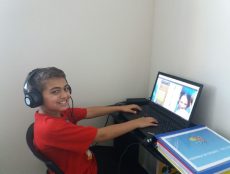
Education Technology
Navigating Online Learning: Tips For Students and Teachers
By eLearning Inside
November 18, 2022
Online learning resources are incredibly important in the modern era, and using them optimally is therefore a must, whether you’re studying or teaching in this context.
There are some strategies for harnessing online learning platforms which make a difference in their effectiveness, so let’s go over a few of them to bring teachers and students up to speed.
Tips for Students
In terms of getting more out of online learning platforms, students have plenty of options, including:
Managing your time effectively
When it comes to remote learning, it helps to balance your responsibilities proactively by setting up a schedule for your studying, rather than just going with the flow.
Divide your day logically between the different aspects of studying, whether that’s reading reports, writing essays, working with others or leaving feedback.
Setting targets
This feeds into good time management because unless you’ve got goals to achieve each day, it’s easy to meander and procrastinate.
It’s better for students to set goals themselves, so don’t just wait for your teacher to push you into this if you know your motivation depends on it.
Finding the right space to study
Unless you’re in an environment that’s conducive to learning, the best online platforms in the world won’t help you achieve your aims.
You need a space that’s quiet, free from distractions, light and airy, and equipped with what you need. This applies whether you’re planning on building a successful brokerage with a real estate qualification, or saving the planet as an environmental scientist.
Using all available resources
We all have different learning styles, which means you have to explore all that a platform has to offer in terms of the educational resources available.
Whether that’s watching videos, reading articles, participating in seminars or attending virtual lectures, all of these in combination will help you retain knowledge, rather than it washing over you without soaking in.
Tips for Teachers
When it comes to teaching via online learning platforms, there are ways to make more of an impact, such as:
Getting to grips with the platform itself
As an educator, it’s your responsibility to know the ins and outs of the tools at your disposal. Just because you’re more familiar with doing things a certain way, that doesn’t mean you should steer clear of the features of the online learning platform that your institution has invested in.
Tailoring content to the format
You’ll be creating a lot of the content which is used by students, so you need to appreciate that certain approaches are better suited to online platforms than would be the case in a traditional classroom.
Brevity is best, for example. So sticking to shorter pieces of content, and even hosting shorter remote lessons, will aid those who are logging on to get involved. This segmented approach helps accommodate some of the unexpected interruptions which are part and parcel of learning online.
Encouraging teamwork
If students are only working solo using online platforms, it can be an isolating experience. Instead, get them to team up with others wherever possible, whether that means working in pairs or forming larger groups.
This will help create a sense of camaraderie, and will also reinforce the teaching they receive while developing other useful skills as well.
Catering to individuals
When teaching via online platforms, be aware that students have different needs which it’s your duty to meet and work around.
Some will thrive in this situation, while others will struggle, and you have to portion out support and guidance accordingly.
Featured image: ake1150sb, iStock.









One Comment